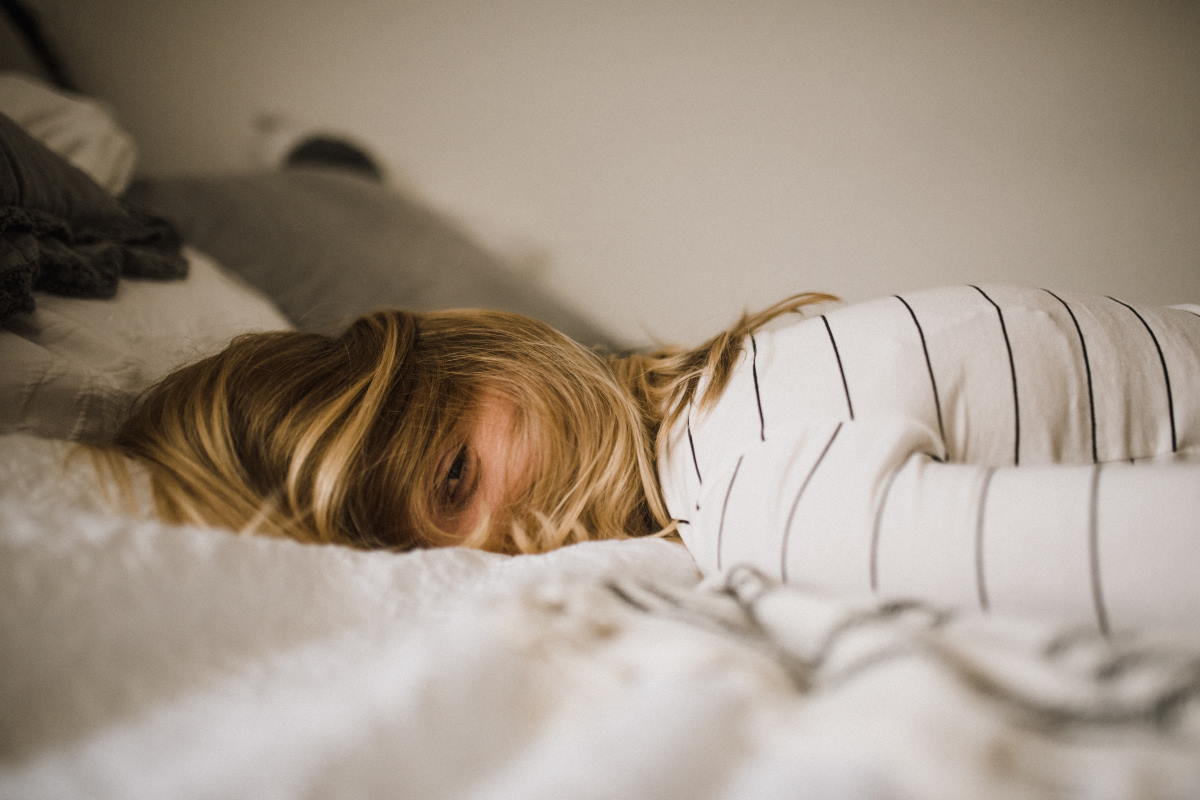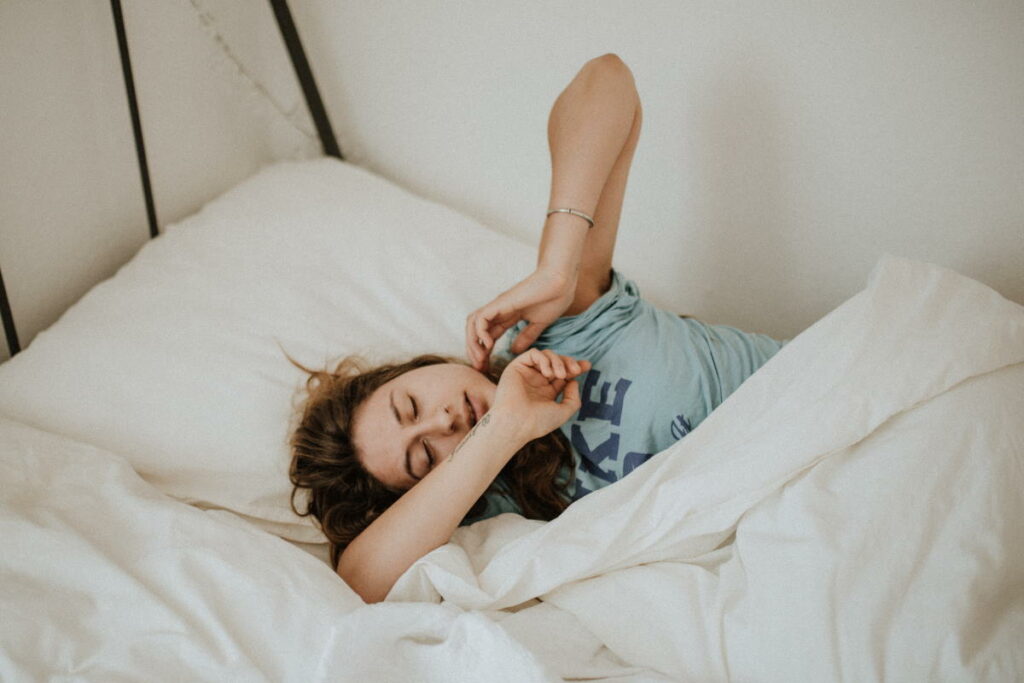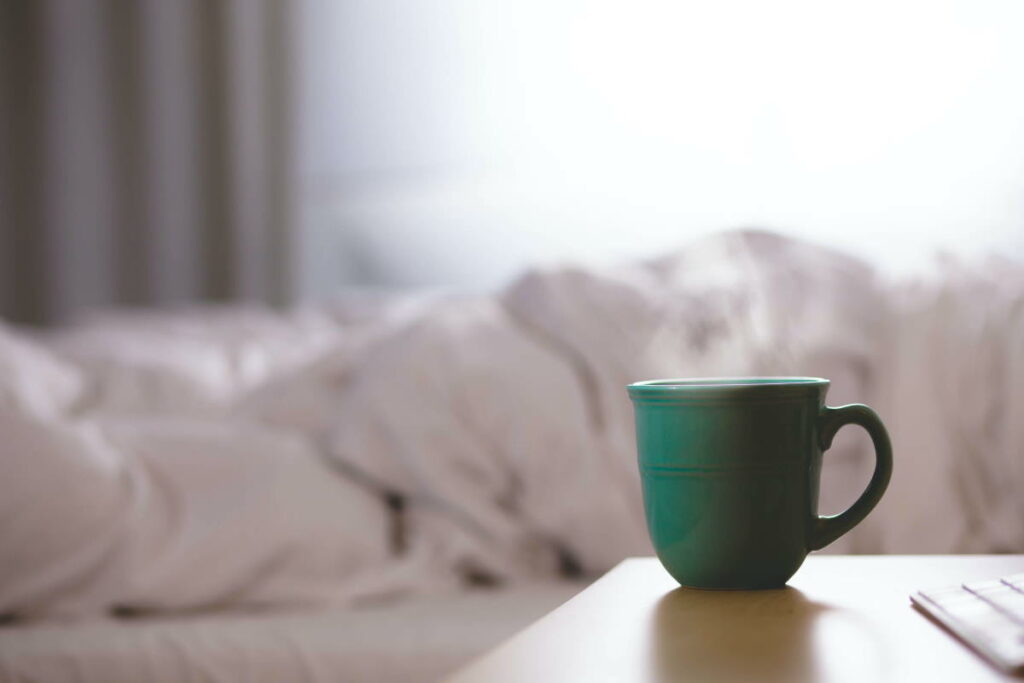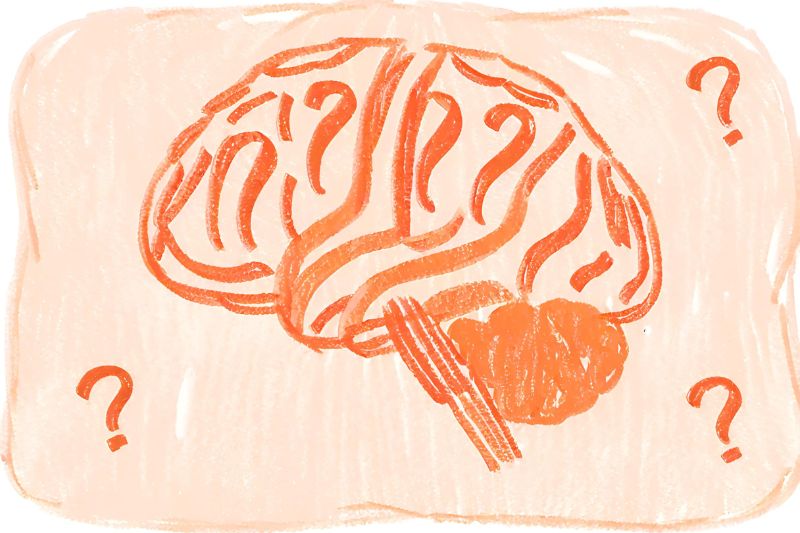Why Is My Anxiety Worse in the Morning?
Why do you feel more anxious in the morning? How can you learn to cope with morning anxiety? Join ManageMinds as we answer all of your questions...

Do you wake up to racing thoughts, an erratic heart rate and a general sense of impending doom? If you do, you’re not the only one. Many people wake up feeling so anxious that they don’t want to get out of bed and face the day ahead. This is what’s referred to as morning anxiety.
In this article, we’ll explore what it means to experience morning anxiety and explain why it occurs. We’ll also offer some tips on reducing your anxiety in the morning so you can go about your day.
What is morning anxiety?
Morning anxiety is when an individual experiences symptoms of anxiety in their first waking hours. Though it’s not an official diagnosis, it is a common experience for many in the UK—not just those with an anxiety disorder.
For some, morning anxiety means waking up with concerns about what happened yesterday or what might happen in the day ahead. For others, however, it’s a far more extreme ordeal, causing severe anxiety symptoms that can make them dread the start of a new day.
Common symptoms of morning anxiety include:
- Increased heart rate
- Surge of adrenaline
- Feeling on edge
- Sense of concern
- Feeling fatigued even though you’ve just slept
- Sweating
- Difficulty focusing
- Sense of impending doom
- Racing thoughts
Some individuals with severe morning anxiety may even experience panic attack symptoms, such as shortness of breath, chest pain, shaky limbs, etc.
To better understand your morning anxiety, you may find it helpful to start noting down your symptoms, including details like frequency and intensity, along with any events that occurred the day before so that you can home in on any potential patterns.
Why do I feel more anxious in the morning?

High levels of cortisol
Cortisol is a steroid hormone that helps your body metabolise glucose, control your blood pressure and reduce inflammation. It is also responsible for helping you respond to stress or danger—as cortisol levels rise, your fight-or-flight response kicks in to help you combat the problem. This is why cortisol is often called the ‘stress hormone’.
Studies into the cortisol awakening response (CAR) have shown that cortisol levels are lowest around midnight and highest in the first hour after waking from sleep. This may explain why you experience anxiety in the morning.
Though there’s no way to stop this natural biological process, there are ways to manage the symptoms so you can get on with your day without the added stress. We’ll explore this further in our section on how to cope with morning anxiety.
Not getting enough sleep
As stressed by the American Psychiatric Association (APA), sleep is a “basic human need and is critical to both physical and mental health”. When you don’t get enough sleep, it can cause:
- Fatigue
- Lack of energy
- Irritability
- Issues concentrating
- Memory problems
Not sleeping well can also affect your mood and emotional health, exacerbating your high cortisol levels in the morning and making you feel even more anxious.
If you’re having a problem with sleepless nights and an increase in anxiety, read our guide on why CBT-I and MBT-I are effective treatments for sleep anxiety.
Going to sleep with anxious thoughts
Ever find yourself lying in bed worrying about your next work presentation or panicking about your health? We’ve all been there. The minute you’re ready to sleep, your thoughts start racing, your anxiety rises, and you toss and turn until you finally succumb to sleep.
Once the sleep fog starts to lift in the morning, however, all of the concerns you couldn’t resolve from the night before begin to bubble to the surface, making you incredibly anxious.
Worry about the day ahead
Your morning anxiety can also be triggered when you start worrying about the day ahead. Whether it’s due to workplace anxiety, paying the bills or going to a doctor’s appointment, worrying about ‘what ifs’ can cause you to experience moderate to severe anxiety symptoms.
Your morning diet
The food and drinks you consume at the start of the day can significantly impact your anxiety levels in the morning.
- Coffee can increase your heart rate, make you feel jittery and cause you to sweat.
- Sugary food can cause your energy levels to rise and then plummet, making you feel on edge.
- Not eating at all can lead to low blood sugar, which can also contribute to feelings of anxiety.
No wonder they say that breakfast is the most important meal of the day!
An anxiety disorder
If you’re experiencing anxiety regularly and not just in the morning, it could indicate that you have a more complex condition like generalised anxiety disorder (GAD).
According to the NHS, GAD is a “long-term condition that causes you to feel anxious about a wide range of situations and issues, rather than 1 specific event”. Individuals with GAD will feel anxious most of the time and struggle to remember a time in which they felt truly relaxed.
If this sounds familiar, you might consider going to your GP to find out if you could have GAD. You can then look into professional treatment with an anxiety specialist. For example, ManageMinds has the Manage Anxiety Programme, a 6-week online therapy service designed specifically to help people experiencing GAD.
How to cope with morning anxiety

Work on your sleeping routine
As anxiety and sleep are so closely linked, it’s no surprise that the first item on this agenda is working on your sleeping routine. If you can get a good night’s sleep, you’ll wake up feeling well-rested, relaxed and far less susceptible to anxious thoughts. So, how do you go about doing this?
You need to:
- Stick to a consistent sleep schedule
- Avoid napping in the daytime
- Limit your caffeine and alcohol intake in the evening
- Avoid electronic devices an hour before bedtime
- Make your sleep environment more comfortable (cool temperature, clean bedding, darkness)
- Use your bed only for sleep and sex
- Only go to bed when you’re tired
If you’re constantly ruminating on things just before bed, you might also consider using a journal to jot down your thoughts. This will help you clear your mind so that you’re not dwelling on your concerns when you should be sleeping.
Get a plan of action sorted
One of the best ways to reduce anxiety in the morning, especially if you’re someone who worries about the day ahead, is to write up a daily plan of action the night before.
Whether it’s a checklist of all the tasks you need to accomplish at work or a rough outline of chores that need to be completed at home, having a rough idea of what you’re supposed to do during the day can make you feel like you’re in control and help to reduce symptoms of anxiety.
Give yourself time
Do you find yourself snoozing your alarm three times in a row? Do you have to skip breakfast in favour of catching the bus? No wonder you feel anxious in the morning!
Being in a rush sets you up for a day of failure. You’re bound to forget something vital in your mad dash to the door, and, more importantly, the stress of your body going into overdrive will have your anxiety soaring.
So, consider waking up earlier in the morning. This will give you plenty of time to get ready, sort out any last-minute chores (making dinner or sorting out your coffee flask) and get to where you need to be.
If your alarm is a source of frustration, consider switching to a sunrise alarm. These clocks gently wake you with a light that gradually brightens over 30 minutes to simulate a sunrise, helping you to wake up naturally (without the horrible shock of adrenaline!).
Eat a healthy breakfast
As we’ve discussed, what you eat and drink in the morning can affect how you feel. As such, you might want to consider making minor changes to your breakfast routine, such as:
- Switching to decaf coffee or giving matcha/tea a try
- Eating protein-rich foods like eggs, overnight oats or banana pancakes
- Cutting out sugary foods like cereal and breakfast bars
- Trying healthy smoothies if you’re not a fan of heavy food in the morning
- Drinking a glass of water to rehydrate yourself
Avoid your phone
Most people’s morning routines usually consist of scrolling through the latest news and social media updates on their phones. Though this can be a relatively relaxing, if not mundane, routine for many, it can have the opposite effect on specific individuals.
Seeing something negative in your first waking hour can trigger your anxiety and impact your mood for the rest of the day. If this sounds familiar, consider waiting a couple of hours before checking your phone.
Exercise
If you’re not a morning person, the thought of engaging in exercise first thing probably has you groaning in despair. But that’s only because you don’t know just how beneficial it can be for you!
Exercise can:
- Distract you from your worries
- Improve anxiety, stress and depression
- Increase levels of serotonin and dopamine which can improve your mood
- Decrease muscle tension in your body
Don’t worry if you’re not a fan of heavy cardio. Any exercise that has you up and moving will help you wake up your body and mind, and leave you feeling energised rather than anxious.
Try some morning affirmations
Affirmations are positive statements that are directed at yourself, with the intention of helping you overcome negative thoughts and promote self-love. According to MindTools, when you repeat affirmations “frequently and believe them, you can start to make positive changes”.
It might seem a bit wishy-washy or embarrassing at first, but morning affirmations can help to reduce your anxiety and boost your self-esteem, confidence and general mood. The more you believe in yourself, the more likely you are to be able to achieve your goals.
Example affirmations include:
- I am ready to face the day
- I can do it!
- I’m calm, and I’m relaxed
- I am capable of overcoming any stressful situation
- I am in control of my life
If affirmations aren’t your cup of tea, you can stick to general positive thinking. For example, if you’re feeling anxious in the morning, replace negative thoughts, such as “I feel awful. I’m going to have a horrible day at work.”, with positive ones, such as “Anxiety is perfectly normal, and I will feel better soon.”
Use some relaxation techniques
Relaxation techniques can help you focus and soothe your mind and body, allowing you to achieve an emotional equilibrium that will continue throughout the day.
- Breathing exercises: learning how to breathe in different ways can help to slow your heart rate, relax your facial muscles and reduce stress (see our breathing exercises infographic for more information).
- Mindfulness meditation: the art of becoming more aware of your present state is a great way to reduce your anxiety and let go of your stress. You can do this with guided mindfulness meditation.
- Progressive muscle relaxation: PMR trains you to tense and relax muscle groups one at a time to release your physical tension and calm your mind.
- Anxiety journalling: jotting down your pent-up thoughts and feelings can help to quiet the noise in your mind and has been found to reduce symptoms of anxiety and depression.
Try therapy
If you’re waking up with morning anxiety every day, you should consider trying therapy. Therapeutic approaches like cognitive behavioural therapy are extremely effective in helping you identify the source of your anxiety and learn new coping skills.
If you’re ready to start your journey towards a happier mindset and anxiety-free mornings, ManageMinds is here to help. We provide flexible, online therapy with experienced therapists who will give you the tools and support to achieve peace of mind.
To get started, take a look at the therapy sessions we offer and book in when you’re ready!
Post Date:
Author: Bethany Hall
Explore More Articles
3 Mental Health Myths Your Therapist Is Sick of Hearing
It's great that more people are talking about mental health, but not everything you hear is necessarily true. Don't fall for these 3 mental health myths!
Feeling Worried? Challenge Anxious Thoughts with These Simple Questions
Stuck in a spiral of anxious thoughts? Use these 3 simple questions to challenge negative thinking and adopt a healthier mindset.
ManageMinds Explains... Narcissists
Even wondered if you or someone you know may be a narcissist? In this guide we cover what narcissistic personality disorder is, as well as the signs you need to watch out for.


